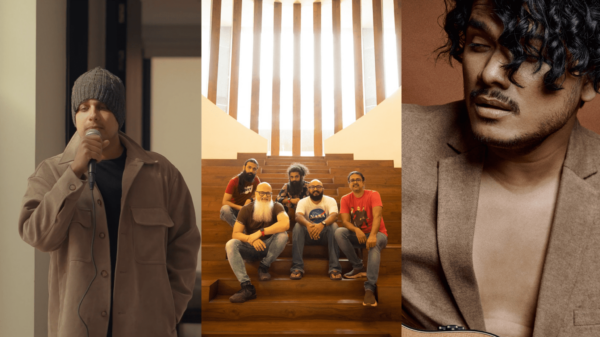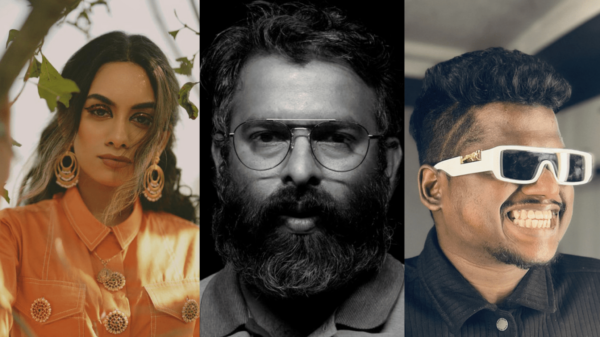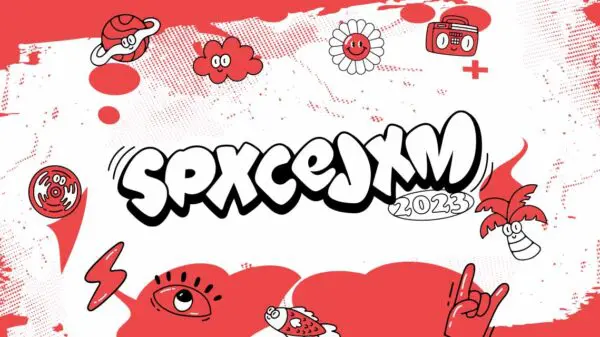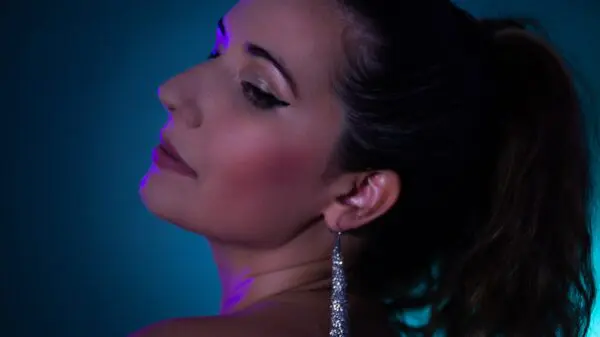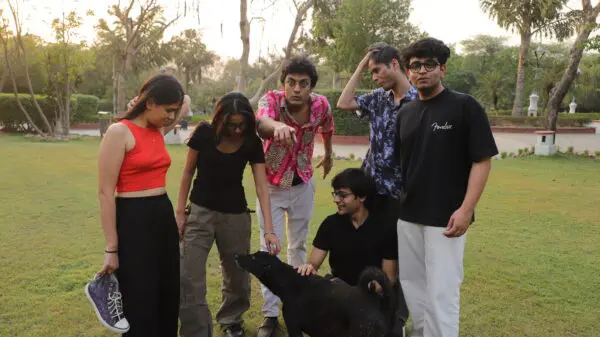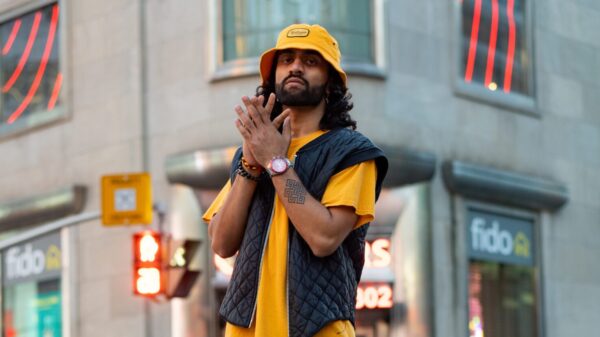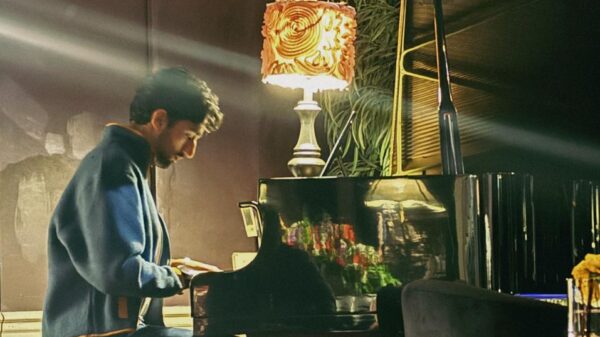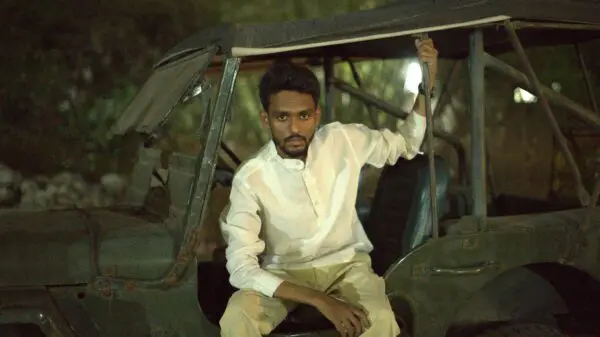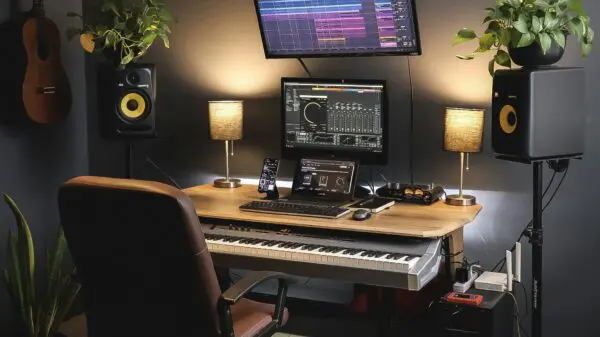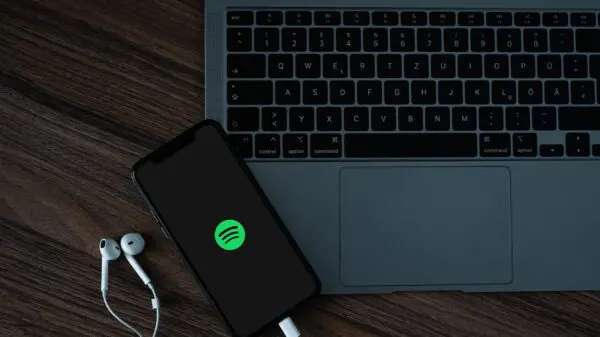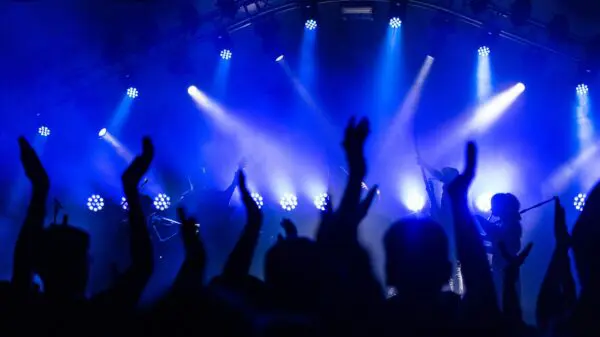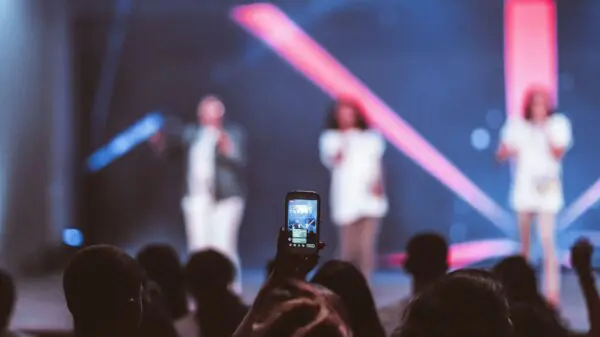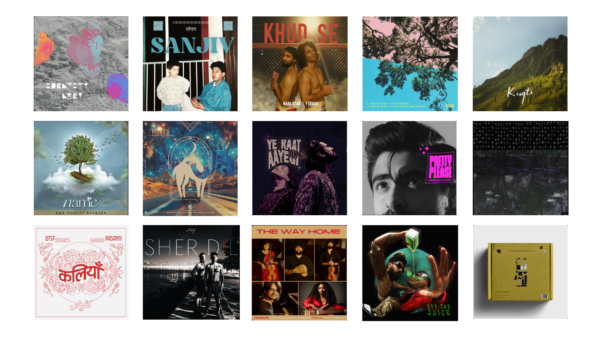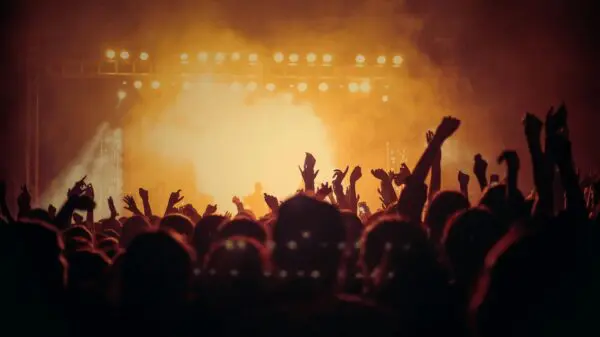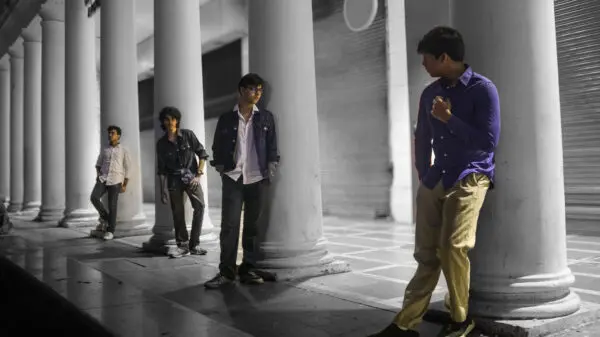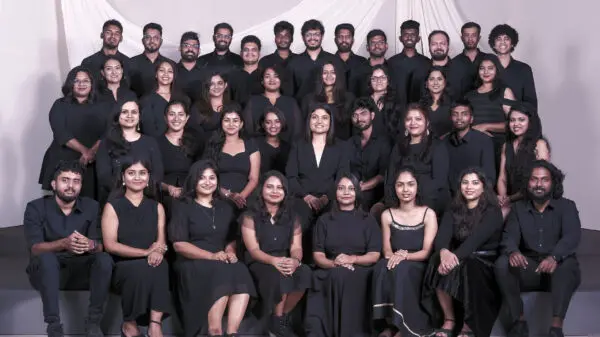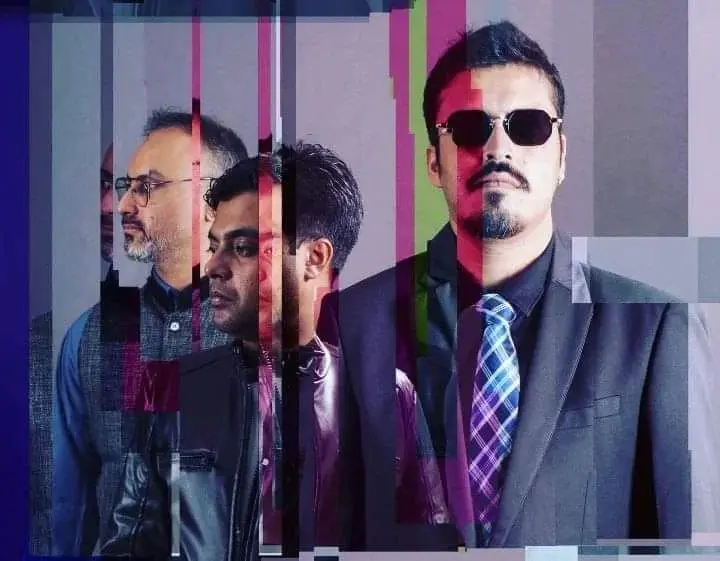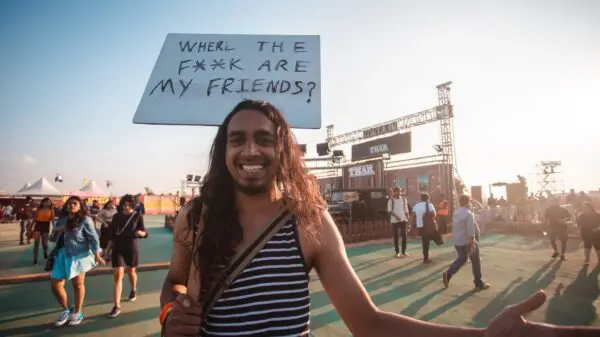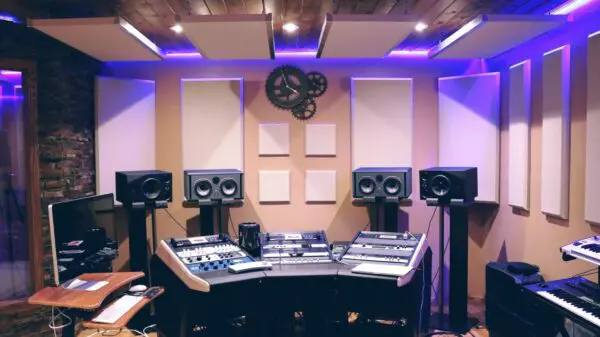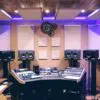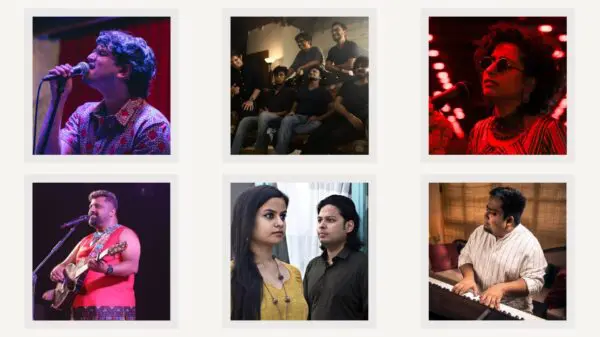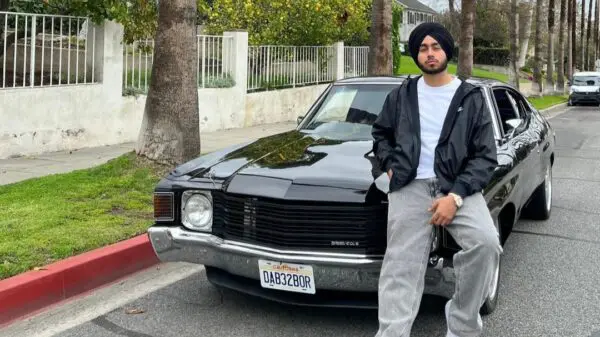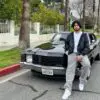If there are only a handful of acts that bloomed out of the Kolkata jazz circle to become globally recognized, one of them has to be the Bodhisattwa Trio. Formed in 2012, the band released their debut EP Fuzzy Logic in the same year, and ever since then, they have been spreading their sonic mojo in not only the City of Love but throughout the country and beyond. With three full-length albums and a couple of singles in their repertoire, The Bodhisattwa Trio holds one of the most eclectic band profiles, one that they have been using to garner the attention of several music enthusiasts all across the globe. Their experimental jazz fusion sound revamps a nostalgic genre with a modern outlook – something that has earned them many appraisals from the audience, critics, and fellow musicians alike. They released their first full-length feature Intersections in 2014 followed by Heart of Darkness in 2016 and The Grey Album in 2019. Currently consisting of guitarist Bodhisattwa Ghosh, pianist Arunava Chatterjee aka Shonai, and drummer Premjit Dutta, the trio has been touring extensively since the past decade all over Asia and Europe playing in multiple prestigious venues.

And now, they are awaiting the release of their fourth-ever studio album monikered Frontier which they recorded in collaboration with Mimika Orchestra in Croatia and Croatian record label Intek Music. I caught up with frontman Bodhisattwa Ghosh on an early December evening just at the dawn of the new year to have a candid conversation about their recent European tour, teaming up with a European orchestra for the first time, and the upcoming album.
1. Congratulations on the completion of your cross-country European Tour. You flew across 6 countries for 23 days playing 15 gigs, including a jazz festival in Denmark. How are you feeling about being able to tour overseas after the pandemic once again?
Especially because it was after the pandemic, the tour was really special. The last time we went there, was in 2019. We had plans for 2020 as well but that got cancelled. Those were some pretty uncertain times. So now hopefully things are back on track and if everything goes well, we should be touring again in June.
2. You have a new album coming out – Frontier, that you recorded with the Mimika Orchestra led by Mak Murtić in Koprivnica, Croatia. How did you come up with the idea of recording this album with an orchestra? Was it something that you had planned even before you started writing the album or did you decide during the writing process?
Our last album was released in 2019 [The Grey Album]. Obviously, we had moved on as musicians. This album was conceived during the pandemic when we were all tied down in one place… then there was the lockdown. That’s why I came up with a concept where the whole thing is based in outer space – that’s what the album is about. Naturally, the kind of sound that I was imagining in my head needed another element apart from the Trio and it had to be quite grand and very expansive. Therefore, I was thinking about how to take the concept and build it in terms of an opera. That’s why I thought about recording with an orchestra. I didn’t know it was going to be Mimika Orchestra but I knew that it had to be a European orchestra because I wanted some elements of contemporary western classical.
So, I spoke to a record label, Intek Music, in Croatia and pitched them the idea. They know our sound since we had worked with them before. They had released our previous album. They gave us the idea of speaking to Mak Murtić from Zagreb who leads this ensemble called the Mimika Orchestra. So, I checked them out. There are some full-length concerts on YouTube of Mimika. When I heard those, I was immediately like “OK, this completely matches the wavelength of what I’m thinking”. When I talked to Mak and told him, “Intek Music gave us your contact. I was thinking so and so, this and this, would you be interested?”. So, he heard our music and immediately connected to it. He and I connected almost immediately after listening to each other’s music! And that’s how it happened.
He said, “We don’t have strings but what we can offer is a full eight-piece horn section.” That’s got tuba, trombone, trumpet, clarinet, flute, baritone saxophone, tenor saxophone, and alto-saxophone. That’s how it came together in the winter of 2021.
3. Your previous album, The Grey Album was also signed by Intek Music and mastered by Marin Hraščanec with whom you also worked on the upcoming record. What was it like coming together to work with him again and what made you want to go back in the first place?
When I met Marin and Helena, the husband-and-wife duo who run the company together for the first time in 2019, they hooked us up with almost eight concerts in Slovenia and Croatia together. We had a great time over there and we played in two festivals – one was in Slovenia, Festival Lent in the city of Maribor, and the other was Fest Jazza in Koprivnica which is one of the most prestigious jazz festivals in Europe.
We also played in Zagreb, Rijeka, and in Ljubljana where we played this time around too. So, we became very good friends. We connected well and they really supported us and believed in our music. And we believed in what they were doing with our product. So, we knew that we had struck a very mutual admiration and respect for each other. It was not like we were going back there but it was more like after we came back in 2019, we constantly stayed in touch. And we also released a couple of singles in 2020 and 2021 which also happened through Intek Music. Even though we didn’t meet in three years we would keep in touch now and then talking about general things and not just work. We connected so well that I feel this friendship is going to stay for the rest of our lives. Therefore, it was only logical that we took this next step.
And I asked Marin also… when we were writing this album… I asked him about the orchestra, about what to do. So, it was he who suggested it. Going back there and meeting them was great. We are great friends and let’s hope that this continues.
4. Can you talk a little bit about your experience working with an orchestra for the first time? Take me through the whole process of how it came about.
It started with Mak taking some time to listen to our music. What happened was that we did some recordings on our own as a trio and I sent them that. Two songs have already been released on the internet [“Lunar Month” and “Europa Swim”], so I sent Mak those. We also recorded our rehearsals which I sent across to him. He took quite a bit of time to get into the mood and understand the compositions. Then he started sending us some charts that he had written on MIDI files on his home keyboard and told us, “This is not what it is going to sound like but this is exactly what is going on.” So, it was quite incredible hearing his take because all the orchestra that you’ll hear… all those orchestral parts… all the horn parts are written, composed, and structured by him. So, he kept sending us those, one after the other. We really liked them but we didn’t know exactly what they were going to sound like. We were in for a surprise.
When we landed after three shows – one in Ljubljana, one in Rijeka, and one in Zagreb… after the third concert on 11th October, we ended up at this rehearsal pad because we had three full rehearsal sessions before we hit the studio. So, when I entered the rehearsal room and we struck the first note with the whole ensemble playing – that gave me goosebumps, and all three of us – me, Premjit, and Shonai, we looked at each other and said, “OK guys, this is what we have been planning our entire lives! It is all finally coming together.” So, that was an incredible experience. More than the recording what hit me was the magnitude of the sound that was happening in the rehearsal room. And you know, hearing my vision – something that I had thought of in 2020 coming to life in real-time, almost as if it’s breathing and I’m listening to that thing – that is a really special experience I would say.
And, each of these instruments, they are so special in their own way – they have this unique character and unique voice… which obviously I couldn’t understand when he was sending me those MIDI tracks. But when I heard each of the parts for what they are… what each of the instruments is doing and collectively what is happening… that was kind of something really special. I would say it’s just the beginning, let the album come out… we do plan to do this live because that is when I think it is truly going to be grand and the most impactful.
5. As you said, you have already released two singles from the album – ‘Lunar Month’ and ‘Europa Swim’. Do we expect to hear orchestral elements in these two tracks as well in the final release?
Yes, absolutely! They are there and they have been recorded already. They’re being mixed right now and you will get two completely two different versions of these tunes. And I would say that these are not just different versions, rather they sound like different compositions altogether once you hear them with the orchestra. So that’s another colour that completes the whole sound. So definitely, that will be there.
6. As per my knowledge, Frontier is a concept album. Could you walk me through the conceptualization part? What exactly are you trying to capture in its narrative?
I’ll first talk about why I wrote such a sci-fi kind of thing. It’s because we were really bored during the pandemic and there was the lockdown… everything was so uncertain with the way humanity had been going. The Grey Album was more about the light and dark aspects of humanity and human civilization as a whole. So, this had to be something different and I got this idea because I was very frustrated with the whole geo-political scenario and this whole far-right movement happening all over the world in all governments… the Putin issue along with everything else. I thought that the way we were going, we were going to end up killing each other… like there’ll be a nuclear war. So, that kinda struck there. We were like, “OK, why don’t we write an album and begin the story with the end of the world?”
I had the beginning and the ending in mind. The beginning was that the Earth is somewhere in the future, it is destroyed and we are advanced enough to gather small individual shuttles and escape this world. The narrative was that the three of us [the band] would take our shuttle and leave Earth and eventually somewhere else – in another dimension, in another galaxy, we find a new home. So, that’s our last track of the album which is like a complete antithesis of this world, like there’s no violence and no war. It is a utopia. The journey is that we’ve left Earth which has been destroyed and landed on another planet where there is a beautiful society. The whole album is about the journey right from the destruction of the Earth to our settling on this new planet.
So, there are two parts to the album – one is the solar system and one is the other dimension. And “Europa Swim” acts as the link between these two sections. What happens in the song is that we swim under the oceans in Europa where we find a wormhole. We go through the wormhole and we come out in a new dimension. Then there are around three to four tracks and then the final track is where we land on Earth X.
And why the orchestra is there and how they come in conceptually is that the three of us are the earthly elements – the astronauts. And Mimika Orchestra are the forces of the cosmos. The whole thing is us venturing into outer space and finding our way through… it is kind of intertwined with what the universe has to offer us. That’s how the two things meet conceptually. It’s a hand-in-glove kind of musical interpretation of this concept.
7. You said that the album is inspired by a lot of science fiction. What are some of your favourite sci-fi movies of all time?
A huge part of the narrative has been inspired by 2001: A Space Odyssey, both the book and more so by the film by Stanley Kubrick. I had the fortune of watching it on the big screen sometime back at the Kolkata Film Festival. It completely blew my mind. It is and will be for a long time one of the greatest stories ever written, I think. Most philosophical, with a lot of depth in the narrative structure and the concept. I also watch a lot of documentaries on outer space, a lot of National Geographic documentaries, and similar other stuff. I also read a lot of sci-fi books, novels, and graphic novels, and apart from 2001: A Space Odyssey, Contact was another movie that I enjoyed. And of course, the Alien series – not the new ones but the older movies.
8. When I gave the pre-released tracks a listen, it seemed like you were not going for any particular genre in this album, but rather focusing on amalgamating a cornucopia of influences. Could you take me through the writing process a little bit? Like, who contributed which parts, and how did you come together to find a common ground given your diverse musical backgrounds?
I would say that there is one sub-genre that you can classify this album’s sound into – it’s either contemporary jazz fusion or avant-garde jazz fusion. Although, indeed, you cannot pinpoint any genre, what I believe is that it falls into a very contemporary sound, something which is a product of 2022… which is very much “now” rather than 70s fusion or 60s jazz. It is nothing like that. That’s what I think all of us, including Mimika, have realized – that this is a modern jazz project coming out of 2022 and it is not Croatian or Indian or American or anything of that sort. It is pretty much an international sound. That we have cracked.
The concepts are mine and what happens is that I first think of the concept – the “idea” behind the composition and then I think about the rhythm, groove, and other stuff. Like this is going to be fast or slow or this is going to be a 4/4 or a 7/4, what kind of a pulse there is… and then I call the band. Then we rehearse and they listen to my narrative and come up with their own interpretations and inputs. So, listening back to those inspires me to write another section of the composition.
For this album, interestingly enough, we knew that we could not complete all the compositions on our own, we needed Mimika. So, we designed the compositions and wrote the music in such a way that there were a lot of possibilities for Mak to write his parts. It was a little challenging because I was writing music in the dark… I know it was incomplete and I also did not know what the complete product was going to sound like. Certain compositions are a bit incomplete without Mimika… we cannot play them live. And others are complete as a Trio… you don’t need anything else.
Before we hit the studio, those compositions – for example, “Lunar Month” or “Europa Swim”, we tailored them in such a way and changed certain sections or elements so that the orchestra can fit in.
So, collectively these are two separate entities – the Trio and Mimika. Obviously, the trio is the foundation because all the compositions are ours and the introduction piece of the album is written and composed by Mak Murtić. The foundation was laid which we then presented to him and there was a lot of back-and-forth exchange of what was working; what was nice or not nice. There was this kind of scrutiny. And of course, those three rehearsals helped. They were long sessions of 4-5 hours each. A lot of tailoring and doctoring was going on there. We agreed and disagreed on a few things too but by the end of the third rehearsal, it was done – we were ready.
9. Talking about your approach as a guitarist – you are known for your improvisational style of playing. Is that how you approached the guitar parts in this album too or was it a more constructive process where you sat down and structured out your riffs?
For this album, as a guitar player, I have taken a backseat. I’m more of a composer in this album. Some parts are improvised but they are very few compared to all my previous albums. I am more focused on what the other people are playing and how things sound like… what works and what doesn’t… so that’s the kind of role that I took upon to captain this whole thing. I didn’t play much because with all these horn players in the project and with Shonai being such an outstanding pianist, I kind of found my guitar sound to be a little boring, to be honest. Like, I’ve been there and done that so there’s nothing new. I would rather take a backseat and make interesting guitar parts that are complementary to the composition and the whole sound but do not scream “OK, so this is the Bodhisattwa Trio so there are so many guitar solos”.
I purposely laid back and let most of the horn players do most of the improvisations. Two of them I really loved – the alto-saxophone player Miha Gyoerek, and the tenor saxophone player Vojkan Jocic, who had solos in the compositions “Jupiter – Collison Course” and “Free Float”. They are the best in Croatia and the most premium saxophone players in the country. So, I had them on board and their sound excited me and I was like, “You guys take charge!”
As a guitar player, my parts in this album are very design oriented. They’re there throughout but not so in your face. They’re enmeshed throughout.
10. Did this prove to be challenging for you? Would you say that this pushed you out of your comfort zone?
Very much so. It put me way out of my comfort zone and made me think and re-think, learn and unlearn different things… I had to tailor myself and my sound to the bigger picture which is the sound of the album. It was a struggle for me to live up to the expectations of what I had in my mind. Because I am not trained in European classical music or anything like that. I am not formally trained in jazz either. Whatever happened in my career was a “work and learn” kind of thing… learning on the job.
So, this was also like that but it was really challenging because these guys come from completely different backgrounds. They have been learning piano, reading and writing music, and studying Chopin, Bach, and Mozart since they were two to three years old. I had to get into their headspace and try to understand what they are about, and what their philosophy is about… when they are improvising, what are their musical roots? How are they looking at the material that I have written? And how we can make them comfortable… as well as how they can make us comfortable? These things were very very challenging. Every step, starting from writing the material to executing it in real-time (because everything was recorded live) was quite the challenge which I enjoyed. But it was also quite difficult and completely out of my so-called “comfort zone”.
11. We are expecting to see The Bodhisattwa Trio live after the launch of this album. What plans do you have regarding that?
Before the release, we plan to do a round of gigs in India in the first week of April. And after the release, what we have in mind is to tour Slovenia, Croatia, Hungary, and Serbia – the Balkan region with the Mimika Orchestra. As a trio, we also plan to travel to other countries like Germany, Denmark, France, and Poland where we have played before and want to go back to.
With Mimika, we are thinking of playing either jazz festivals or auditorium concerts with a proper ticketed system… like a fully indoor or outdoor, a big stage, and big production. Like a classical concert. I want to do the same here in India in the winter of 2023. I have this in my mind in the pipeline so while we are on tour in India in April as a trio, we will get things rolling to at least see the possibilities, and logistics of things… who can fund, what are the sponsorships and how many shows that we can look at.
I want to do this because I belong here. No matter how many times we tour Europe, I belong here and I would really want my people, my countrymen to listen to this sound and experience this vision because it’s going to be very interesting… it might not be the easiest listening to but it’s going to be very interesting once you watch the full thing live. That’s the mission that I have in mind, so let’s hope for the best!
12. What are you expecting when it comes to audience response?
That’s a very difficult question. But I can say for a fact that once you hear this live, you will be blown away. I am not trying to raise my collar or anything like that but I’m saying this in full confidence. It’s such a grand sound and the way it’s done and how it’s going to sound on stage… It won’t let you think of anything else… it will capture the audience immediately.
Regarding the album, I would say listen to it alone. If you are listening in a group or if you are having fun then I don’t think you are going to enjoy [chuckles] because the music is a little intense and pretty heavy on the head. It is definitely not easy listening to it if you are looking to chill and relax… just don’t do it. But if you want to listen to something and are looking out for good music… you are on your own and you want to think and expand your mind, this will work.
Frontier comes out in April. The release date is yet to be announced.

